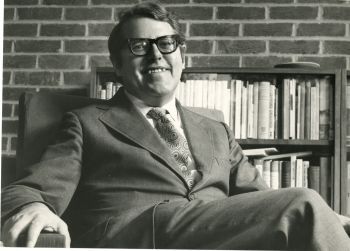Asa Briggs, Lord Briggs of Lewes, passes: 07 May 1921 – 15 March 2016
Asa Briggs, Lord Briggs of Lewes, died peacefully at home in Lewes at the age of 94.
 The eminent historian and academic leaves behind a wife, Susan, two sons, two daughters, and 14 grandchildrenLord Briggs’s main fields of interest were the social and cultural history of the 19th and 20th centuries and the history of broadcasting in Britain.
The eminent historian and academic leaves behind a wife, Susan, two sons, two daughters, and 14 grandchildrenLord Briggs’s main fields of interest were the social and cultural history of the 19th and 20th centuries and the history of broadcasting in Britain.
In an academic career spanning seven decades he contributed enormously to University life in institutions across the UK, the US, and the Commonwealth.
A ‘founding father’ of the University of Sussex, he later became the University’s second Vice-Chancellor. Lord Briggs became a life peer in 1976.
Born in Keighley, West Riding of Yorkshire, in 1921, he graduated with a double first from both Sidney Sussex College, Cambridge (BA), and, simultaneously, from the London School of Economics (BSc) in 1941.
During the Second World War, he served from 1943–45 in the Intelligence Corps at Bletchley Park, deciphering messages on the Enigma machine.
Following the war, his academic career spanned some of the most renowned universities and institutions in the world:
- 1945–55: Fellow of Worcester College, Oxford
- 1950–55: University Reader in Recent Social and Economic History, Oxford
- 1953–55: Faculty Fellow of Nuffield College, Oxford
- 1953–54: Member of the Institute for Advanced Studies, Princeton, New Jersey, United States
- 1955–61: Professor of Modern History and co-Head of the History Department, Leeds University
- 1961–67: Professor of History, Dean of the School of Social Studies, and Pro-Vice-Chancellor, University of Sussex
- 1967–76: Vice-Chancellor, University of Sussex
- 1976–91: Provost of Worcester College, Oxford
- 1978–94: Chancellor of the Open University
In 1988 he was also one of the founders and the first chair of the Commonwealth of Learning.
University of Sussex Vice-Chancellor, Professor Michael Farthing, who was with Lord Briggs and his family today, describes him as “an extraordinary man” who had had a “stellar career”.
He says: “He had a huge breadth in his life and he contributed to an enormous number of different universities, different ideas to his discipline of history, and on a much wider scale to higher education in general. He was a visionary and a dear friend; I shall miss him terribly.”
Lords Briggs was a prolific writer covering a wide range of subjects.
His published works include his Victorian trilogy: Victorian People, Victorian Cities, and Victorian Things; The Age of Improvement; A Social History of England; and a five-volume History of Broadcasting in the United Kingdom from 1922-74.
He also wrote about more recent changes in the media with A Social History of the Media: From Gutenberg to the Internet(with Peter Burke), published in 2002.
Since his 90th birthday he had written four books, the first of which was Secret Days, recalling his life at Bletchley Park, and the last a collection of poetry written throughout his life, The Complete Poems of Asa Briggs: Far Beyond the Pennine Way, to be published in April.
He presided over numerous societies, including that of a literary family who lived very nearby to his birthplace in Keighley, the Brontë Society.
Lord Briggs lived in Lewes, East Sussex with his wife Susan. Since 1991, after retiring from Provost of Worcester College, Oxford, they bought a house in East Lothian where they lived happily between Scotland and East Sussex. They continued to play an active part in the life of the University of Sussex and all the other academic institutions that Lord Briggs had been so keenly involved with.
